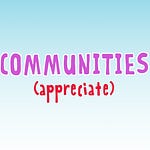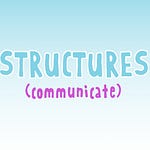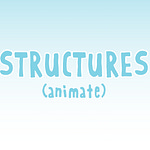Abbie: Hello and welcome to the CosmoParenting Podcast brought to you by the CMM Institute for Personal and Social Evolution. In this space, we invite you to see yourself as someone who is curious about and actively participating in creating your own meaning around parenting.
This is our ‘Communicate’ episode, in which the fourth episode of each month we will wrap up our theme by offering some ideas for communicating with your children, co-parents, or whoever else might be a part of your parenting, to start having conversations about the things you are learning here. Let’s begin.
*music*
Abbie: Today, I am joined once again by Don Waisanen. Don is parenting three boys. He is also a professor, consultant, author, and improviser. Hi, Don. Welcome back.
Don: Hey, Abbie. Thanks for having me back again.
Abbie: Thanks for being back again. Today, we are talking about conflict. What we started with this month was making the kind of claims, really, that conflict can be constructive or destructive, and then also that conflict is composed of differing forces or needs. So for me, the biggest message that I think I'm hoping people leave with is that they can tell a new story about conflict. A lot of us take for granted this story that conflict is destructive, conflict is bad. But conflict, I just wonder, can we think of it as more neutral? Not that conflict isn't ever destructive.
And that kind of leads me to reference the strategies that Stephanie and I talked about as well. We talked about ‘Body Scans’ because a lot of people feel really activated in conflict. So how are you tending your physical self? But then also after conflict happens, what does repair look like? That's also something I think we could use a new story about. So Stephanie offered the ‘Three-Step Apology’ for that. So that's kind of where we're coming from as we enter into this episode with you. What would you like to share about communicating around conflict?
Don: What a great topic to take on. I have gradually come to the conclusion that this is the, I would say, number one skill area for all of us to be working on. I continually see in day to day work, in the news, in all these different spheres of life, people don't know how to do this. They don't know how to deal with difference well. Right? And if you're a human being, you are going to confront difference. Right?
Abbie: Yes.
Don: A lot! All over the place all the time. And in the context of kids, it's it's constant differences and needs and age groups. My kids are three and a half years apart each. And I noticed that alone is the source of a lot of difference in conflict because they want to do different things. One wants to go to the roller coaster park right now. And then like I've got one who's too young to do that. We're constantly negotiating those kinds of differences.
And I think- I'm just going to put this out there- I think avoiding conflict may actually be a bigger problem than just meeting conflict head on and dealing with it or just working with it and managing it productively. I've been teaching a class in conflict management negotiation for years now, and students often tell me, they say, I came into this class thinking this was all about fixing others. And they say the biggest takeaway is that this was actually about myself. It was about coming to terms with my tendencies, my patterns, my habits, and actually starting there is where we start to see changes in others that we might want, right? You can't reverse that order.
The one thing you can always work on is yourself. And I think about that as a parent, like I can't necessarily change my kids, but I can work on me first and see what kind of work that does, how that creates new possibilities.
So, I think you're right, Abbie, we're swimming upstream in this area. I think there's a lot of conflict work to be done in the moment of conflict. But I've actually changed my mind over time on this. And I think that dealing with conflict while teaching our kids how to do that, teaching ourselves how to do that actually takes place at moments when we're not in the middle of a conflict.
Abbie: Yeah.
Don: So I'll give you one example. One of my kids were just realizing that the ability to perform curiosity, the ability to be curious and ask questions. Nobody knows anything without questions. Questions are the source of everything we know.
Well, let's just work on that. So when we ride to school together in the car, I have this book, it's 3000 Questions. So I don't have to come up with them. We get a limit of like, what's a question you have? And I don't know, right? I was like, well, this book will help us out.
So this 3000 questions book, and we just do two questions each every morning on the way to school. Questions like if you could have joined any music band, which one would it be? You know, things like that. And they're just all over the place. But I noticed once we get going, it's fun and he finds it fun and we just do it.
But it's that to me is emblematic of how we can all approach conflict training and skill development. Don't do it in the moment when it's happening, but it's really afterwards is the time to reflect and then setting the conditions for good conflict management, getting good at asking questions, I think is a great way to go at this. So that's just one example, but lots of stuff at play there.
Abbie: That's taking me back to, God, I just feel like I've learned so much from Stephanie. And, you know, the whole point of the strategy episodes with her, the ‘Animate’ episodes, is what we're calling them, is based in this idea of pre-teaching. And so she references, you know, very similar example that in the moment on the playground, when everybody's fighting over the toy, that's not the moment.
Everybody's very activated and that's not the moment to try to sit down and talk theoretically about conflict and how to approach it. So you're pre-teaching, pre the activated moment, laying down some of these strategies. And that leads me into, I think the reason that avoidance is such a default for people, is so tempting for people is because we are unequipped in that existing communication conflict skills and strategies. We don't have things in our back pocket. And so that moment does feel very activating.
So that's my hope- the strategy episode with Stephanie this week, I thought was really important, and then even what we're continuing to talk about and even seeing all the strategies we're offering over the course of this podcast as being about equipping you so you have the confidence to not avoid when what you need to do is lean in.
Don: I love that you brought up the physiological aspects of this too, the body scans you were mentioning earlier, because I think that plays into exactly what you're talking about here. We've got these little areas in our brains called the amygdalas. It's the fight, flight, or freeze, or fawn response that we get right when there's something dramatic happening, conflictual happening.
And this little fear center of the brain overdoes it at times. Kids' brains are flooded much more quickly and easily in the fight, flight, fear, fawn responses. And so as parents adjusting to that, I think is an important thing. Like you said, like when, when kids' brains are flooded, we get flooded too, right? Triggered and flooded and overwhelmed. Like that's not the time to have a lesson about this, right?
The rational part of us is, is out, especially for kids at that point. So we have to go, okay, go breathe, go run around, go, go to your room, separate yourself for a bit, come back.
I actually have a colleague in CUNY, City University of New York. Her name is Sarah Schulman. She's a professor. And she wrote a book called Conflict is Not Abuse. And she says a lot of the problems we see in the world are about overstating harm, treating conflict as abuse.
Now, there is real abuse in the world. There are physical harms. There's abuse. And it should be treated as such and proportionally to, you know, those kinds of things.
But she says, this is a really interesting argument that when we treat conflict, which is a very normal thing of dealing with differences as abuse, and therefore we end up avoiding conflict or not learning conflict skills, how to negotiate that well, how to deal with people, work with people well, we put this whole sphere of life that should be a normal part of our lives- like you said at the beginning, conflict is neutral. Conflict, right? Instead of we need a new story around this. And, yeah, maybe it's not neutral. It's normalizing, normalizing conflict. This is a normal thing we're dealing with here. It's hard, but this is not off the path of what human beings have had to deal with, you know, for a long time.
Abbie: Yeah, that's really wonderful. And Don, thank you so much for joining me again today. We'll hear from you again in future Communicate episodes. So I'll look forward to that.
And everyone listening, thank you for joining us too. Don't forget to check out www.cosmoactivities.com where you can access all of our other resources in this series for free. Those are great tools for bringing your kids into the conversation to help them learn alongside you as you are learning along with us throughout this podcast. I'd also like to invite you to comment on this podcast episode in the Cosmo Parenting Substack. That's a great way to be in dialogue with our community. And like I said, so much to learn from each other. So I'd love to see you comment there. And we're so grateful to be on this journey with you. And we will look forward to joining you next week for our bonus ‘Relate’ episode, where we will spend some time thinking about the past three themes- relationships, moral forces, and conflict together.
*music*










